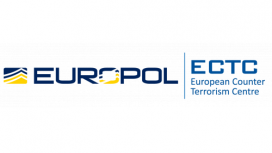Homeland Security & Cybersecurity Connection - It's Not About the Terrorists
Welcome to Course 1 in CS4950, Homeland Security and Cybersecruity. In this course we examine the origins of homeland security and its connection with cybersecurity. Homeland security is about safeguarding the United States from domestic catastrophic destruction. Catastrophic destruction comes in two forms: natural and man-made. For most of history the man-made variety came in the form of warfare and required the combined resources of a nation state. All that changed March 20th, 1995. On that date, members of a quasi-religious cult in Japan attacked the Tokyo subway system using Sarin gas. It was the first deployment of a weapon of mass destruction my a non-state actor. The power of destruction once reserved to nation states was now available to small groups, even individuals. The incident was a wake up call for governments around the world. Defense establishments designed to keep rogue states in check were practically useless against non-state actors. Overnight, the number of potential enemies multiplied a hundred, maybe even a thousand-fold. In response to the Tokyo Subway Attacks, the United States took measures to protect itself from WMD attack by non-state actors. Those measures were still being enacted when the nation was attacked on 9/11. On September 11, 2001, nineteen hijackers inflicted as much damage as the Imperial Japanese Navy on December 7, 1941.
After taking this course you will be able to:
• Identify different types of actors involved in cyber threats (individuals, organizations & nation-states)
• Distinguish between different types of threats and issues in cyber security including, data theft, political espionage, critical infrastructure protection, and propaganda
• Detail the basic characteristics of the Internet infrastructure and international efforts to address Internet governance
• List several international efforts to address cyber crime and espionage
• Evaluate how principals that govern international conflicts might be applied in context of cyber security
• Apply different psychological theories of human motivation and cooperation and communication and political theories in analysis of different international issues related to cyber security including censorship, media operations and role of social technologies.
No background knowledge or skills are necessary, but an understanding and familiarity of cyber security, Internet infrastructure and international law would be advantageous for anyone who participates in the course.
Lokalizacja
Kliknij ten przycisk, aby ubiegać się o przyjęcie na kurs. Zgłoś się
| Tematy | |
| Języki | English , Danish |
| Ocena | Multiple Choice Test |
| Odbiorcy docelowi | |
| Metody nauczania | |
| Liczba uczestników | 30 |
| Akredytacja | |
| Certyfikat |
W przypadku pytań dotyczących kursu prosimy o kontakt.
Kliknij ten przycisk, aby wysłać wiadomość. Skontaktuj się

